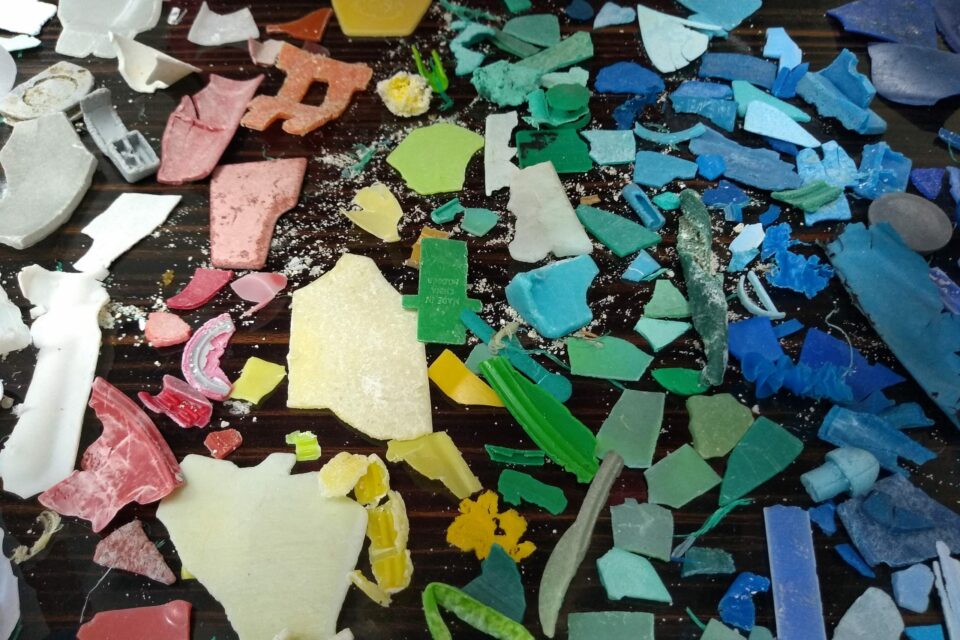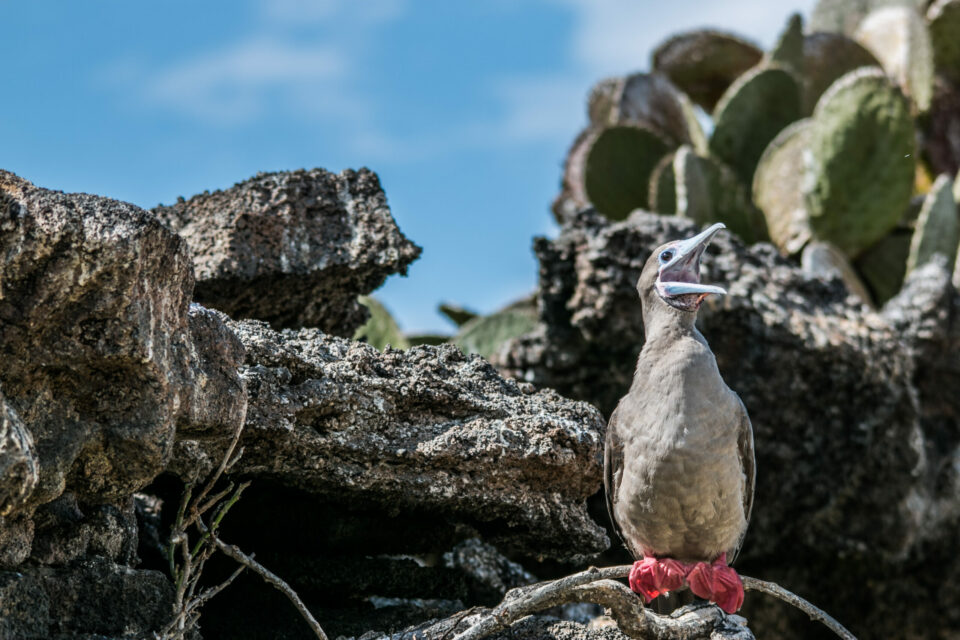

Deposit return schemes – their importance in fighting plastic pollution
A deposit return scheme could help to reduce the amount of plastic waste polluting the Galapagos Marine Reserve.
Thousands of tonnes of plastic are dumped into our oceans every year, killing millions of marine animals globally, as they mistake it for food, choking or starving to death, or become entangled in it. Globally, our drinking water is already contaminated with microplastics and it is predicted that by 2050 the amount of plastic in the ocean will outnumber the fish[1]. In Galapagos, steps are being taken to reverse this tide of plastic before it’s too late. One project, Cup4Cups, offers paper cups in exchange for plastic ones and could be the ideal project to change the mentality towards plastic waste in Galapagos before introducing a deposit scheme to ultimately eliminate single use plastic.
Deposit schemes
Deposit schemes involve adding a small extra charge to the purchase of most types of plastics, which is refunded when people return them. The scheme aims to increase recycling rates of plastics (predominantly bottles), as well as to reduce ocean pollution[2]. A good example of the bottle deposit scheme’s success is in Germany[3]. This country had a very efficient recycling system and refillable bottles were widely used until the 1990s, during which the quota of recycled plastic bottles fell below 72% for the first time. This led to a mandatory deposit scheme in 2003, where a €25c deposit was applied to most plastic and glass bottles, including non-carbonated and alcoholic mixture drinks. Today, this scheme is so successful that 98.5% of refillable bottles are returned by customers, which is the highest percentage in the world. Furthermore, the scheme has helped to remove 1-2 billion single-use containers from the bins and streets of Germany. Sweden is another great example because 86% of cans and 77% of PET plastic is returned for recycling. Deposit-refund schemes for plastic bottles and containers can even operate at quite low costs (from €0c – €1c per packaging unit). South Australia closely follows Sweden[4] with an overall return rate of 79.9% for beverage containers so that they only make up 2.9% of litter. In fact, in 2016-2017, almost 587 million containers were recycled at collection depots and over $58 million was refunded to the community in this period.
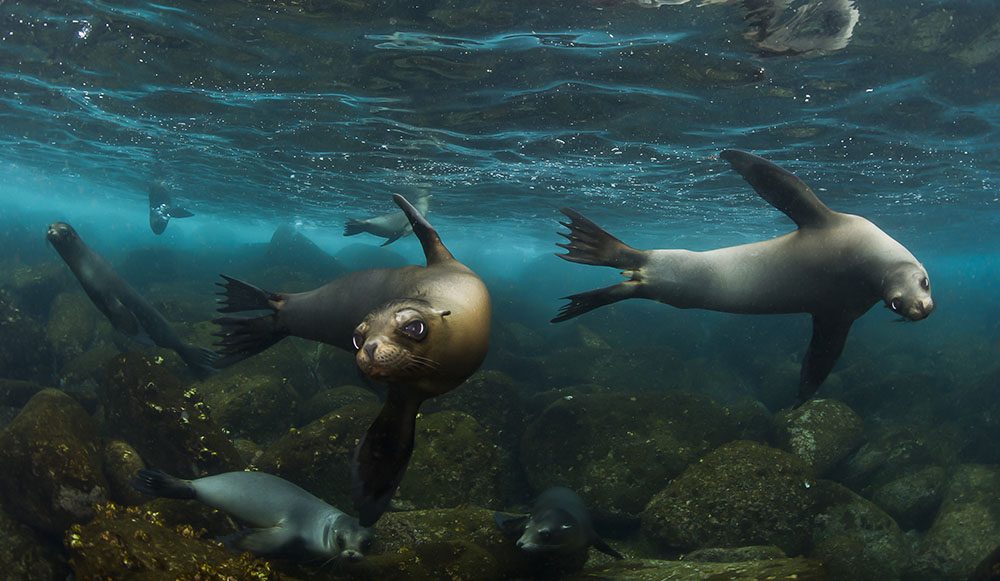
Plastics are thought to be a threat to marine life in the Galapagos Marine Reserve, including Galapagos sea lions © Tracey Jennings
Deposit scheme proposals in the UK
Many retailers are in favour of an obligatory deposit return scheme for plastics in England and Wales, and recycling rates in the UK have not increased for five years (57% of plastic bottles), they even fell to 44% last year. However, the British government did not include a deposit return scheme in its 25-year environmental plan, despite many MPs believing such schemes for plastic bottles are the key to fighting plastic pollution. They assure that it will not only remove plastic from our rivers, streets and beaches, but will also help to develop a sustainable economy. The Natural History Museum has also recognised the deposit scheme’s importance, announcing that it will stop selling single-use plastic bottles at its sites to help preserve our oceans[1]. Smaller businesses, however, worry that they will not have the money nor the manpower to operate the machines[2].
South America
While the deposit-return scheme does exist in many South American countries, it is not widely used and generally involves recycling glass bottles, rather than plastic. Nonetheless, in Colombia where only 17% of waste is reprocessed, Antiago Aramburo co-founded the Ecobot, a machine that provides coupons for various shops in exchange for used plastics. Since being introduced in April 2016, the 7 machines have collected over 147 thousand plastic bottles for recycling[3]. This indicates that Colombians do see the importance of recycling and will do it if it is accessible and they are reimbursed; other South Americans may share this view.
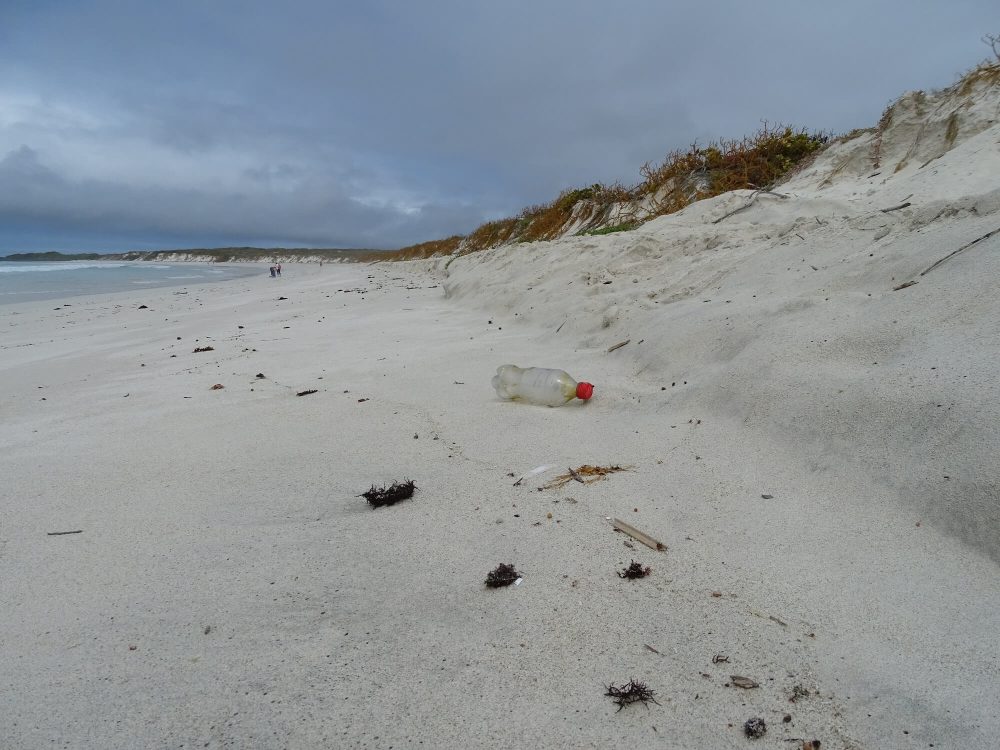
The Cup4Cup scheme aims to reduce the number of domestic plastics ending up in the Galapagos Marine Reserve, like the litter here on Tortuga Bay beach © Clare Simm
Plans in Galapagos
The initial idea for the campaign Cup4Cups originated from the environmentally-conscious German company Orcatec, which also supports local youth organizations, such as the surf club in Santa Cruz and Ecosistema in San Cristobal, in reducing plastic. They have provided 20,000 paper cups between 2015 and 2017 to eliminate the use of plastic cups and plan to introduce reusable cups and small food containers at a later date to replace single-use plastic. This will act as a pilot for a larger project to follow up with a deposit-return scheme for coffee cups across Santa Cruz and later, other islands in the Archipelago. In the last two years, the transition from low-priced plastic cups to higher-priced paper cups has been successful. The deposit system already exists in Galapagos in the case of glass bottles, water canisters and gas cylinders. The social base for the Cup4Cups project is, therefore, solid and the population is ready for the next step towards sustainability.
Help us in our fight against plastic pollution in Galapagos by donating to GCT today.
[1] F. Harvey, David Attenborough on the scourge of the oceans: ‘I remember being told plastic doesn’t decay, it’s wonderful’, [website], 2007, https://www.theguardian.com/tv-and-radio/2017/sep/25/david-attenborough-on-the-scourge-of-the-oceans-i-remember-being-told-plastic-doesnt-decay-its-wonderful, (accessed 12 January 2018).
[2] S. Laville, Co-op and Iceland back bottle deposit scheme to reduce plastic pollution, [website], 2017, https://www.theguardian.com/environment/2017/nov/30/co-op-iceland-bottle-deposit-scheme-uk-reduce-plastic-pollution, (accessed 4 January 2018).
[3] J. Simon, Beverage packaging and Zero Waste, [website], 2010, https://zerowasteeurope.eu/2010/09/beverage-packaging-and-zero-waste/, (accessed 4 January 2018).
[4] EPA, Container deposits, [website], 2017, http://www.epa.sa.gov.au/environmental_info/container_deposit, (accessed 5 January 2018).
[5] S. Laville, Co-op and Iceland back bottle deposit scheme to reduce plastic pollution, [website], 2017, https://www.theguardian.com/environment/2017/nov/30/co-op-iceland-bottle-deposit-scheme-uk-reduce-plastic-pollution, (accessed 4 January 2018).
[6] L. Bundock, Ocean Rescue: UK needs plastic bottle deposit return scheme, MPs say, [website], 2017, https://news.sky.com/story/uk-needs-plastic-bottle-deposit-return-scheme-report-warns-11180525, (accessed 8 January 2018).
[7] CGTN, Turning Trash into Cash, Colombian company gives coupons for recycled bottles, cans, [website], 2017, https://news.cgtn.com/news/3d3d674d79674464776c6d636a4e6e62684a4856/share_p.html, (accessed 5 January 2018).
Related articles

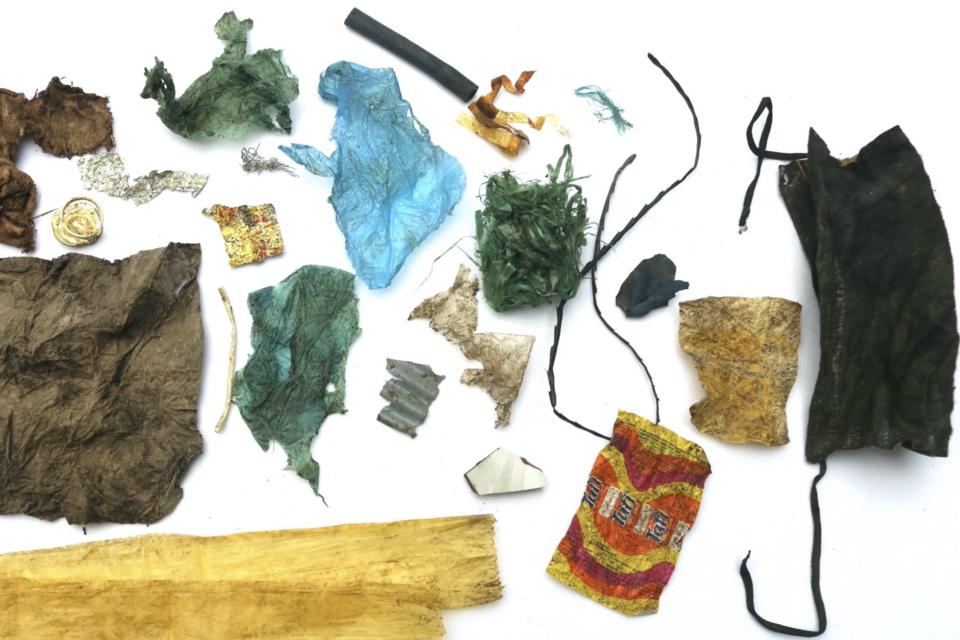
New research shows that Galapagos giant tortoises are ingesting plastic waste
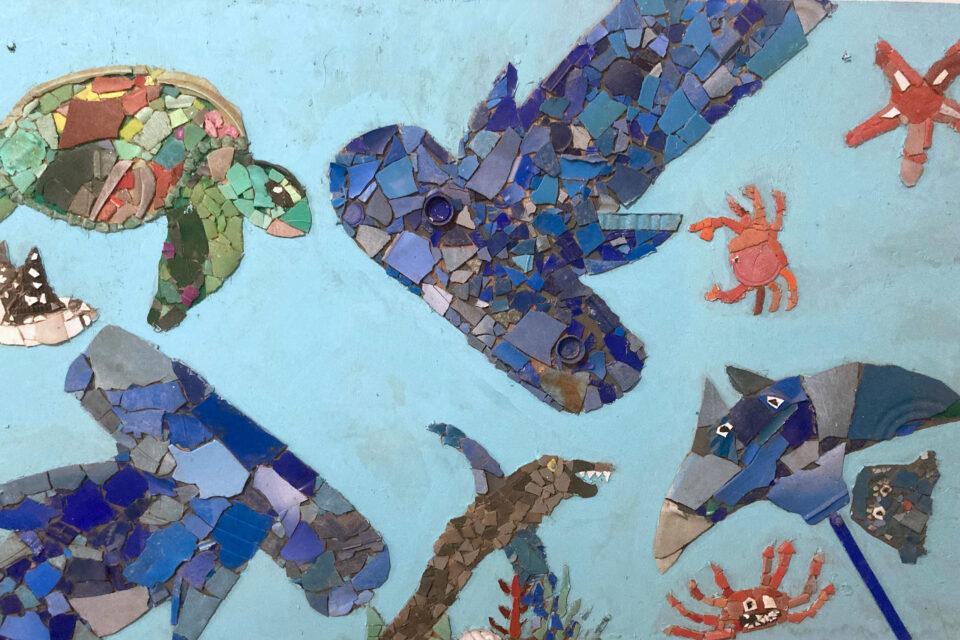
Creating a circular economy for plastics in Galapagos
